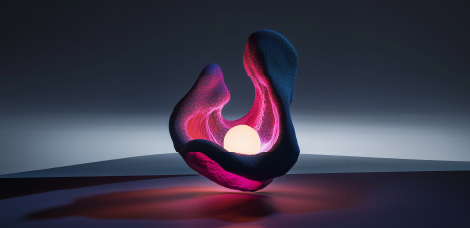The AI revolution has reached the world of healthcare in a way we never imagined. Specifically, I would like to talk about a field of research and knowledge that until now had limited visibility, but at the same time one for which we have barely scratched the surface of its potential.
I am talking about voice biomarkers that have emerged as a powerful tool in early disease detection and the improvement of medical attention. These advances are changing the way in which we diagnose and treat certain pathologies, and they are calling us to take full advantage of this technology’s potential.
What does this consist of? Imagine which feelings or emotions you feel when hearing a voice… Can you feel the exhaustion of the person on the other side, their age, gender (of course), height, complexion…?
Okay, great, you have a good imagination…
But, yes… We can feel and experience things (many more than we believe, like credibility, trustworthiness, etc.) through voice input only. Big matters in terms of our survival for which we are beginning research about their impact on our nature and behavior as human beings…
Whenever someone talks to us we hear words, syntax and prosody all at once. Afterwards, we look for clues about the type of person that the speaker is and what they are trying to say. We analyze the context using considerable intellectual capabilities to try and make sense of what we are hearing. “The brain is connected to see every aspect of every human expression as significant”, wrote Clifford Nass, a pioneering thinker in machine-human relations.
But in all, if we compare our data recollection to the variables that trained AI can detect to this same end, ours are few, a ridiculously tiny amount… AI does not care for prosody, syntax or words. It only analyzes millions of images, soundwaves… Data, data and more data…
And so you will say, what does this have to do with healthcare? Well, one of the many tasks that AI can be used for is the analysis of voice biomarkers. But, what are they exactly?
Voice biomarker analysis through AI is an innovative technique in which AI technology is used to evaluate and extract relevant information from the vocal characteristics of a person. These vocal traits include speech patterns, tone, rhythm, intonation and other voice characteristics that can provide clues to someone’s health and wellbeing.
Here is my explanation of the steps in this process:
- Voice data recollection: the first step in voice biomarker analysis is compiling someone’s voice recordings. These can be done through devices such as smartphones, microphones or voice assistants. In these recordings, different voice tests may be carried out or the voice can simply be recorded naturally.
- Vocal trait extraction: once the voice recordings are done, AI algorithms are used to extract a wide variety of vocal features from said recordings. These traits can include voice frequency, speech rate, tonal variation, pause duration and many other measures that define how someone speaks.
- Pattern analysis: AI analyzes the resulting voice characteristics in order to identify patterns and tendencies. It can look for subtil vocal differences that could indicate the presence of a specific disease or medical condition. For example, some pathologies like Parkinson can affect someone’s speech fluency and intonation.
- Health applications: the results of voice biomarker analysis can have several applications in the healthcare field. They can be used for early detection of diseases like Parkinson, heart disease, depression, respiratory infections and more. They can also provide information on the progression of a disease and help in monitoring patients over time.
We find ourselves at the beginning of a new way of understanding health through something that makes us unique: OUR VOICE, which is also something that, contrary to other parts of our body, ages at a slower pace. And thus, any small change is perceptible, not by us, but by AI that will help us in the early detection of diseases that cause small variations in our voice, changes so imperceptible that we will inevitably need the help of machines to detect… Maybe this is the start of a tAIght bond, and hopefully it will be if the end goal is to save millions of lives, instead of turning lights on and off at home.
Roberto Carreras Director Senior Marketing Voice de Voikers by LLYC




